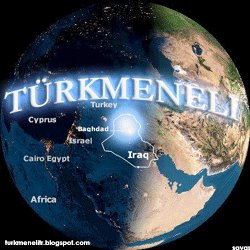Tension rises over Kirkuk
By Kareem Zair
Azzaman, June 4, 2007
Rival minorities are at loggerheads over the fate of the oil-rich city of Kirkuk.
As Kurdish leaders vow to include Kirkuk within their semi-independent enclave, other minorities in the city say they will oppose the move with all available means.
President Jalal Talabani, a Kurd, and Massoud Barzani, head of the Kurdish enclave in northern Iraq say they would not accept any constitutional amendment to a paragraph calling for a referendum in the city.
The paragraph, known as article 140, is among the most contentious in the constitution which Iraqi Sunnis would like to see substantially revised to preserve the country’s national unity.
The Kurds want the referendum to take place at the end of the year as stipulated by the constitution because they believe they now have numerical superiority in the city.
Other ethnic minorities accuse the Kurds of attempts to change the city’s demographic structure in the years since the downfall of former leader Saddam Hussein.
“We are determined to apply article 140 of the Iraqi constitution regarding the normalization of conditions in Kirkuk,” said Talabani.
But Iraqi Turkmen and Arabs who live in the city and its suburbs are openly resisting Kurdish attempts to annex Kirkuk.
They say if the government went ahead and let the Kurds to have the city, the move would eventually backfire, fuelling further the current ethnic and sectarian strife.
Arab and Turkmen leaders have asked the government to turn Kirkuk into a special region with an administration in which the three major minorities – Kurds, Arabs and Turkmen – will have equal share.
They also want article 140 revised as part of the amendments demanded by the Iraqi parliament and mainly Sunni opposition leaders.
For the time being they would like at least the implementation of the article postponed for at least five years.
But Barzani in a joint press conference with Talabani said, “We shall not accept any postponement of that paragraph.”
By Kareem Zair
Azzaman, June 4, 2007
Rival minorities are at loggerheads over the fate of the oil-rich city of Kirkuk.
As Kurdish leaders vow to include Kirkuk within their semi-independent enclave, other minorities in the city say they will oppose the move with all available means.
President Jalal Talabani, a Kurd, and Massoud Barzani, head of the Kurdish enclave in northern Iraq say they would not accept any constitutional amendment to a paragraph calling for a referendum in the city.
The paragraph, known as article 140, is among the most contentious in the constitution which Iraqi Sunnis would like to see substantially revised to preserve the country’s national unity.
The Kurds want the referendum to take place at the end of the year as stipulated by the constitution because they believe they now have numerical superiority in the city.
Other ethnic minorities accuse the Kurds of attempts to change the city’s demographic structure in the years since the downfall of former leader Saddam Hussein.
“We are determined to apply article 140 of the Iraqi constitution regarding the normalization of conditions in Kirkuk,” said Talabani.
But Iraqi Turkmen and Arabs who live in the city and its suburbs are openly resisting Kurdish attempts to annex Kirkuk.
They say if the government went ahead and let the Kurds to have the city, the move would eventually backfire, fuelling further the current ethnic and sectarian strife.
Arab and Turkmen leaders have asked the government to turn Kirkuk into a special region with an administration in which the three major minorities – Kurds, Arabs and Turkmen – will have equal share.
They also want article 140 revised as part of the amendments demanded by the Iraqi parliament and mainly Sunni opposition leaders.
For the time being they would like at least the implementation of the article postponed for at least five years.
But Barzani in a joint press conference with Talabani said, “We shall not accept any postponement of that paragraph.”
